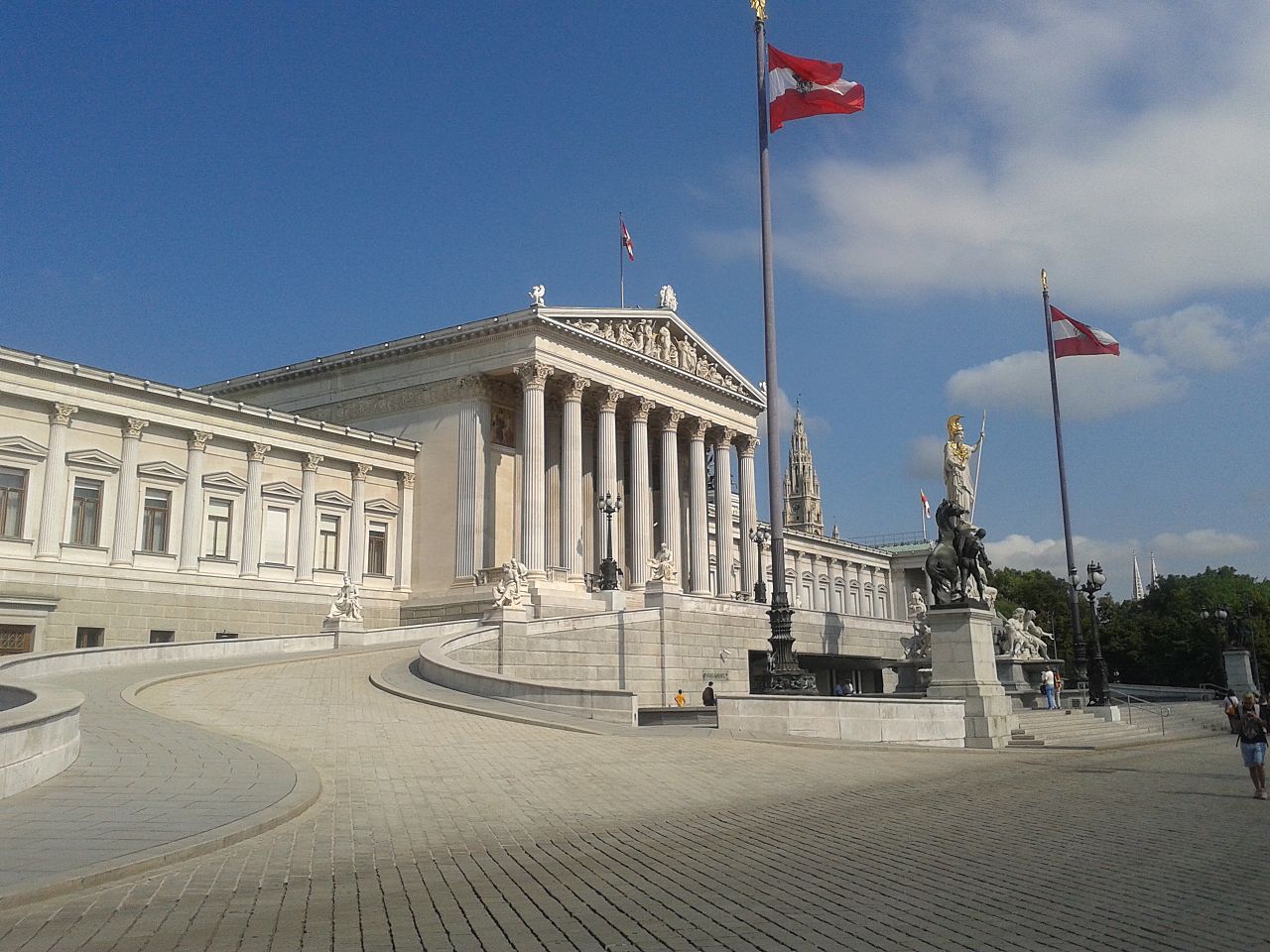
In this article, we are going to give you the most important tips for traveling to austria. Not surprisingly, this Central European country, although it has rules and customs similar to ours, has its own peculiarities. And you want to know them well so that your trip is pleasant.
It has a history as long as it is impressive, whose period of splendor was the Austro-Hungarian Empire disappeared after the World War I. Numerous and spectacular monuments remain from that period, especially in Vienna, capital of the nation. But it also has other beautiful cities like Innsbruck, Salzburg o Linz. For all this, knowing this country will be a wonderful experience. But, to make it even better, we are going to give you some tips for traveling to Austria.
The best time to travel to Austria
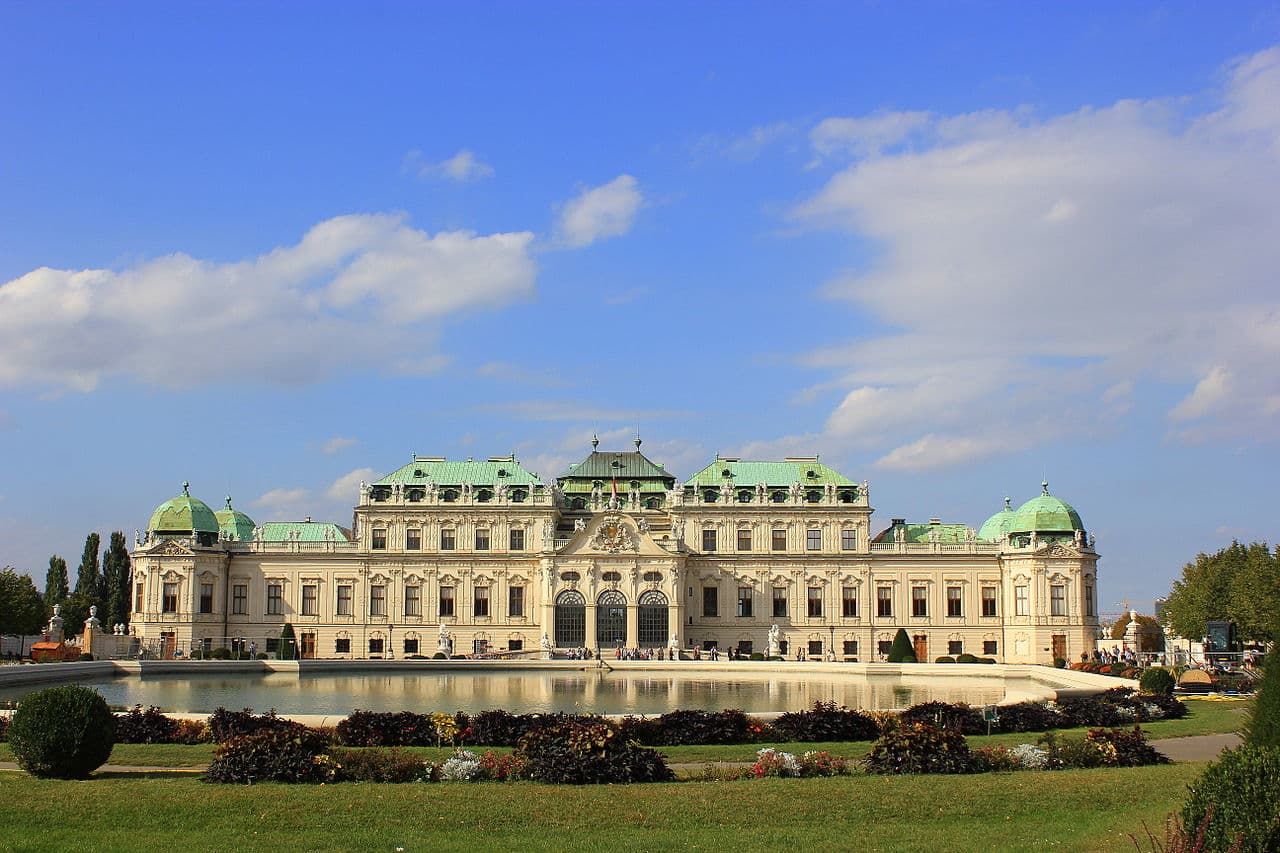
The Baroque Belvedere Palace in Vienna
First of all, we want to advise you on the best time to visit the Central European nation. Actually, any time is a good time to do it. But, as is the case everywhere, there are better and worse months. A) Yes, we do not recommend that you go in winter, unless you want to practice snow sports. November to March is the coldest time. The country has a Continental weather pretty extreme. Therefore, in those months the temperatures are really low. Also, it rains a lot, which can limit your freedom of movement.
Summer is much more pleasant. But it's also the high season, when the largest number of tourists visit the nation. Therefore, the main attractions can be crowded. In addition, the prices of both hotels and restaurants are more expensive. maybe the best time to travel to Austria is spring. The weather is also mild and there are fewer tourists visiting the more famous places. The same can be said of autumn. However, you should keep in mind that the days are shorter.
Regarding the weather, we must also make some details. As we were saying, if you visit Austria in winter, it will be quite cold, so you must wear warm clothes. But also in spring, autumn and even summer temperatures are relatively low in the morning and at night. Therefore, if you go on these dates, you should also have some warm clothing.
The necessary documentation to visit Austria

Building of the famous Vienna State Opera
This is a vital point to travel anywhere. If you do not carry the proper documentation, you will not be able to enter the country. However, Austria belongs to the European Union. This means that you do not need a passport. Just bring your National Identity Document to cross its borders.
It is also important that you take into account other aspects related to documentation. You can't forget to bring the European sanitary card in case you get sick or have an accident. With it, you will have access to free medical assistance. However, we advise you to also get a travel insurance. With it, you will have other eventualities covered, such as repatriation. These policies are not expensive and give you peace of mind.
For its part, pharmacies work the same as in Spain. They have business hours, but there is always someone on duty. To find out which one, they put this information in their windows. If, instead, you need to call the emergency room, the common European number is 112. But, for more direct attention, in Austria it is el 144. By the way, we will tell you that the police number is 133.
Likewise, for any other type of problem that may arise, in Vienna you have a Spanish embassy. It is located in the wieden district, near monuments such as the Belvedere Palace or the church of San Carlos.
Currency and forms of payment
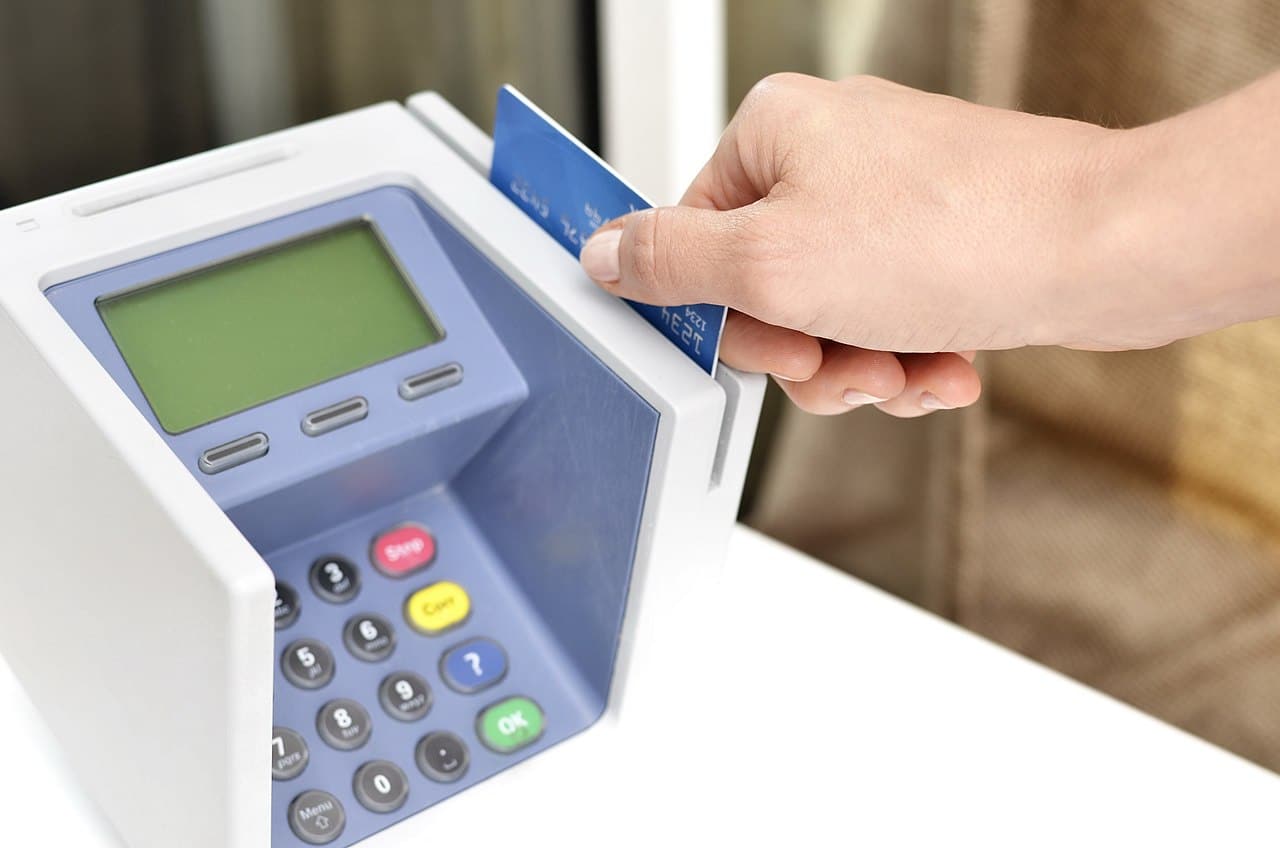
I pay with credit card
As we told you before, the country belongs to the European Union. So, its official currency is the euro, Same as in spain. Consequently, you will not have to change to go to Austria. If you travel from another country, for example, from Latin America, you can change your currency to euros in the banks of your nation. And you also have the option to do it within Austria, too. in banks or even in some hotels.
On the other hand, keep in mind that, according to the regulations of the European Union, if you carry with you more than 10 euros or a similar amount in foreign currency, you will have to declare it to the customs authorities. Regarding the forms of payment, shops, hotels and restaurants accept all major credit cards. These will also be used to withdraw money from ATMs. However, some specific establishment may require payment in cash. Therefore, it is better that you ask before making the expense.
Business hours and holidays
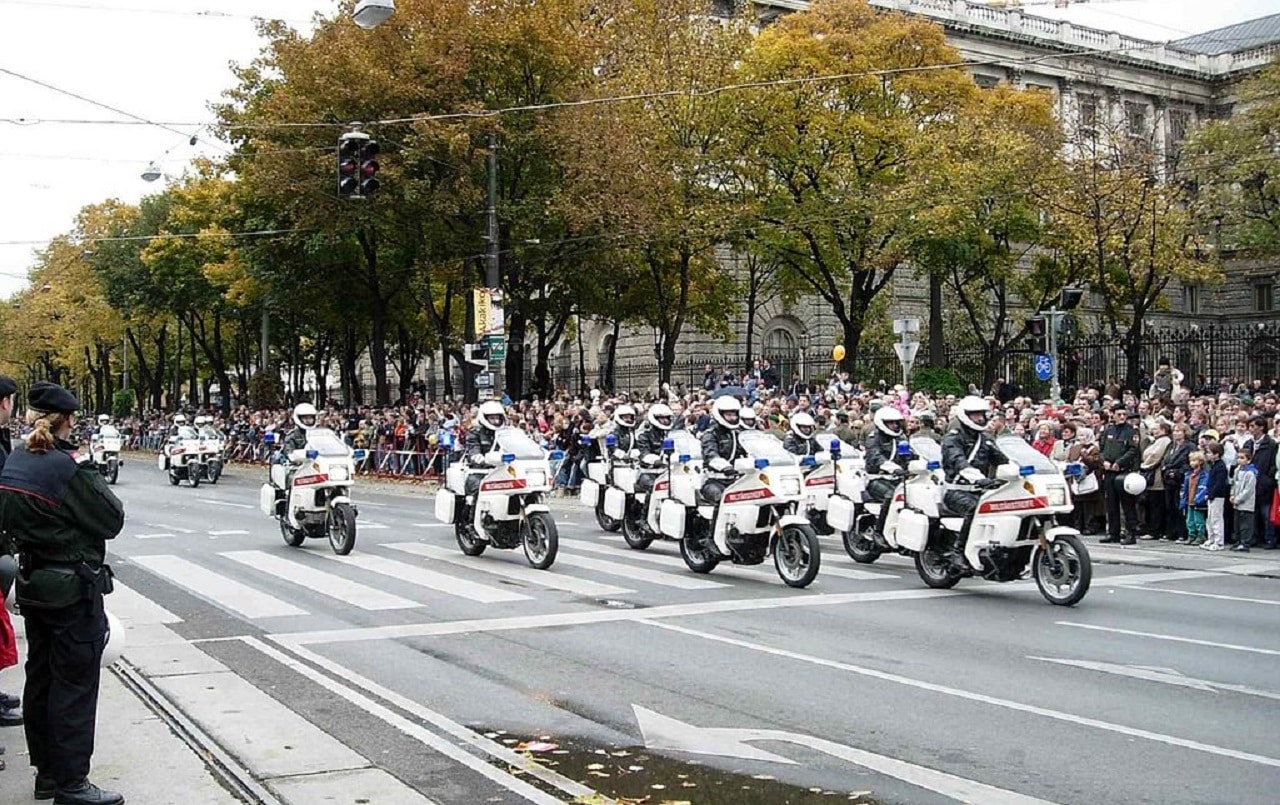
Parade on the occasion of the Austrian National Day
If you are going to visit Austria, you will surely want to make some purchases to give to your loved ones. And you will also be interested in knowing what the hours of cafeterias and restaurants are. As to las tiendas, opening and closing depend on the local customs of each area. But overall, Their hours are from 9.30:19 a.m. to XNUMX:XNUMX p.m. Monday through Friday.. Logically, they are closed on Sundays (except the grocery stores). remembrances), while on Saturdays they usually open from 10 a.m. to 18 p.m..
As for restaurants, usually give meals from 11.30 a.m. to 14 p.m.. For its part, dinners are served from 18. However, in big cities you have places that offer hot food throughout the day. Likewise, it is customary for the client to leave a tip of between five and ten percent of the invoice amount.
We recommend that you respect exactly these schedules. The Austrians are very rigid with them. And, if you are careless, you run the risk of, for example, staying without lunch or dinner.
On the other hand, among the tips for traveling to Austria, we have to tell you about the holidays. There are quite a few throughout the year, but one of the most important is the National holiday, which is celebrated on October 26. Specifically, it commemorates the country's declaration of neutrality after finishing the Second World War. Other religious festivities coincide with the Spanish ones. For example, December twenty-fifth or January one and six.
And the same can be said of other secular holidays such as Labor Day, the first of May. Please note that these dates are non-working dates. This means that offices and shops are closed.
Itinerary and safety: essential among the tips to travel to Austria
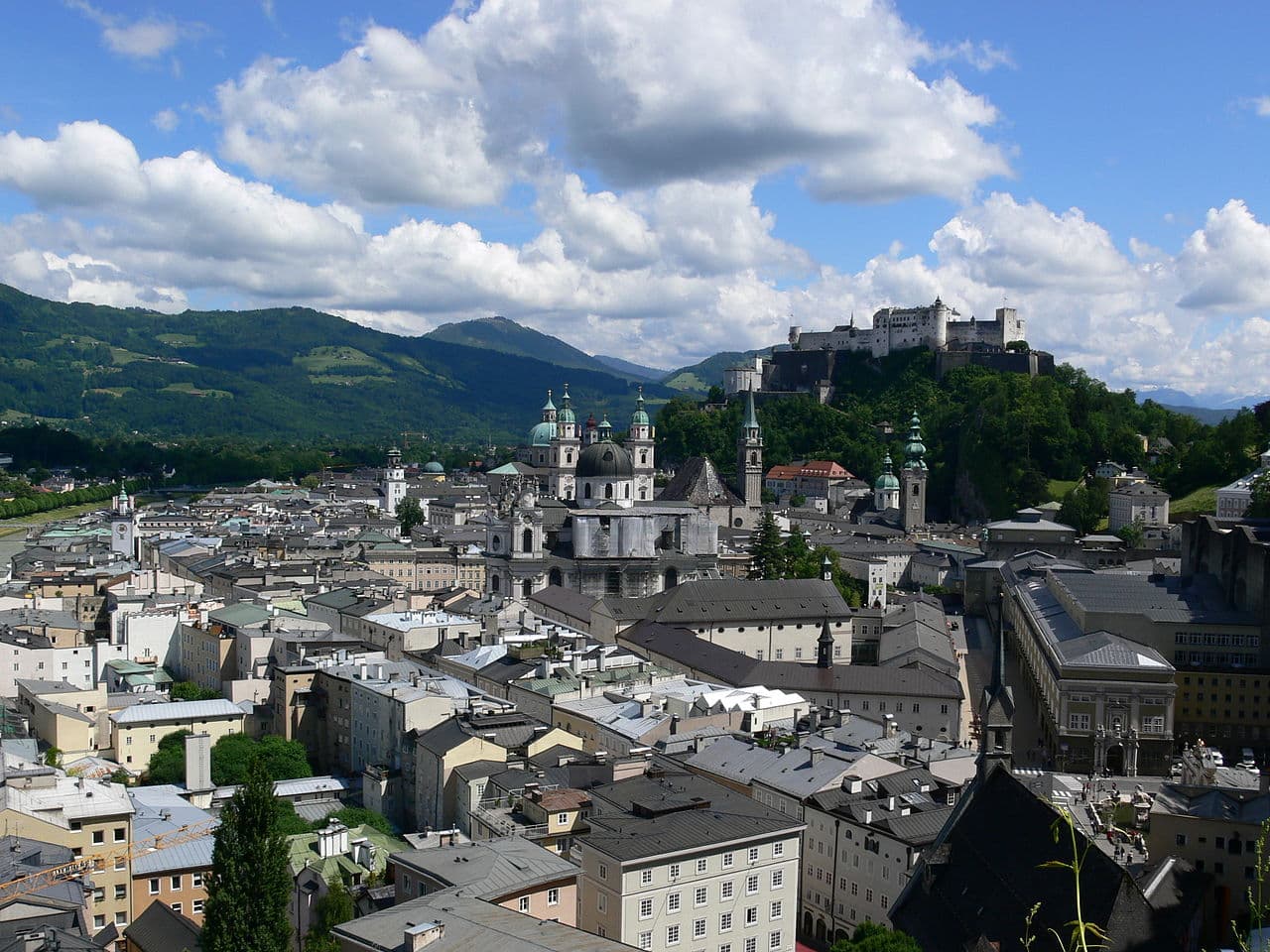
view of salzburg
The central European country It is safe. In general, it is difficult for you to be a victim of a crime. However, in big cities like Vienna o Salzburg, especially near the great monuments, there are enough pickpockets. For this reason, we advise you to leave your documents that are not essential in the hotel. And the same thing we say about money. Take with you what you will need. The rest, you can keep it in the safe of your accommodation.
On the other hand, any tour of Austria must include Vienna, its capital. We recommend you visit wonders like the baroque palace of Belvedere, the Imperial or the Schönbrunn, with its spectacular gardens. Also they Opera and Parliament buildings. Or, when it comes to religious monuments, the spectacular St. Stephen's Cathedral and the already mentioned Church of San Carlos Borromeo, another baroque marvel.
Your tour of Austria can continue in the beautiful Salzburg, Cradle of Mozart. Its historic center is a World Heritage Site and it highlights the nonnberg abbey, monastery of saint peter and the cathedral, also a baroque jewel. Likewise, you have to visit the impressive hohensalzburg fortress and getreidegasse, street where Mozart's birthplace is located.
The next stop on your trip to Austria could be Innsbruckwhere is the precious Swarovski Museum. But also the Hofburg or imperial palace and the Santiago's cathedral. However, the symbol of the city is the golden roof. It is a beautiful XNUMXth century structure decorated with almost three thousand tiles. Also, from this town you can visit the beautiful Tyrolean valley of studebai and also approach the Krimml Falls.
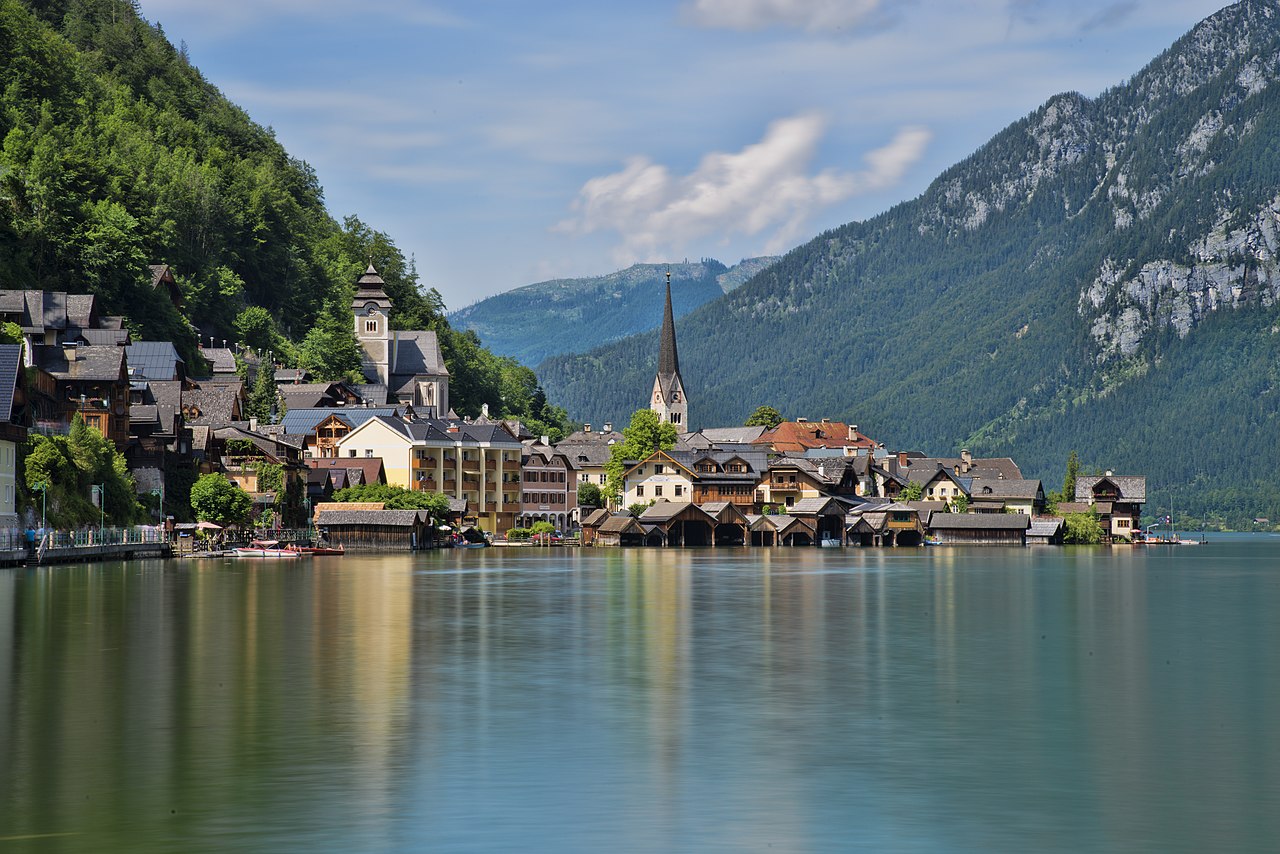
The beautiful village of Hallstatt
Nor can you miss the beautiful town of Hallstatt, which some have described as the most beautiful town in the world. Located on the shores of the homonymous lake, in the mountainous district of Salzkammergut, forms a dream postcard.
Finally, you can end your tour of Austria in Linz, bathed by the Danube. Don't stop approaching her main square, presided over by a baroque column twenty meters high dedicated to the Holy Trinity. It is also framed by the old Town hall, the building of the University of Art and Industrial Design or the Feichtinger House, with its famous bells.
Likewise, you must see in this city the new and old cathedrals and the posttlingberg church, located on the hill of the same name, which is reached through a unique mountain railway. But above all, visit the linz castle, where you have an interesting museum dedicated to the history and customs of the region.
In conclusion, we have provided you with some tips for traveling to austria. It only remains for us to add that you try its tasty food, with dishes as tasty as the pork roast, viennese schnitzel or the famous knödel. And also with desserts as exquisite as the sacher cake or Kaiserschmarrn, a kind of thick and sweet crepes. It only remains for us to wish you a good trip and ask you to tell us how it went when you return.